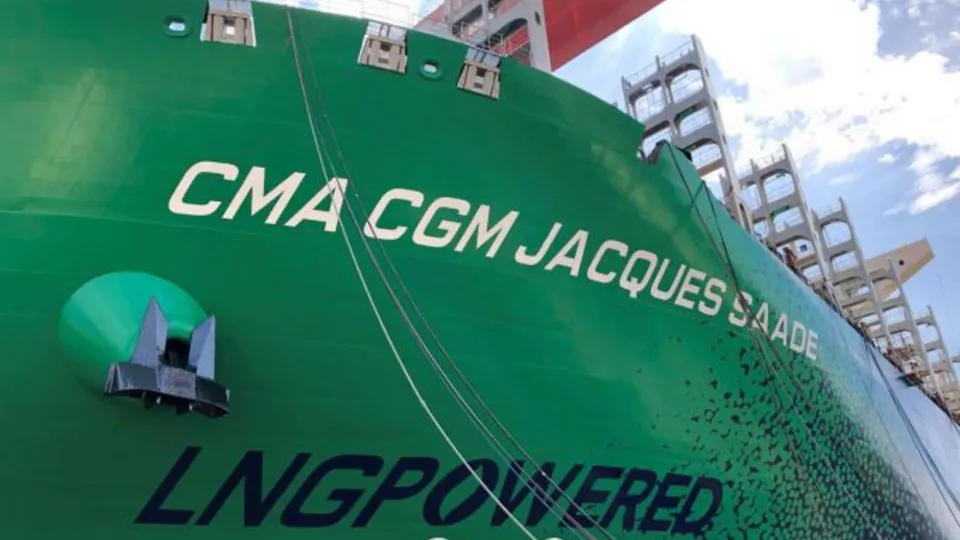The EU Parliament’s environment committee ENVI wants the EU to increase demands for the shipping industry when it comes to the union’s upcoming maritime fuel regulation, FuelEU Maritime. For instance, use of LNG has to end by 2035.
According to the EU’s environment committee, ENVI, carbon emissions ought to reduced by 100 percent in 2050 instead of the proposed 75 percent. According to NGO network GSCC, this means that no more ships will sail on LNG in the EU as of 2035. | Photo: PR/CMA CGM
The EU’s proposal for an upcoming maritime fuel regulation, FuelEU Maritime, is not ambitious enough, and the demands for shipping and fuel suppliers ought to be tightened significantly.
Such is the opinion of the EU Parliament’s Committee on the Environment, Public Health and Food Safety (ENVI), which on April 28 has made a proposal for a number of changes to the EU’s FuelEU Maritime initiative.
According to NGO network, Global Strategic Communications Council (GSCC), the committee’s proposal contains five points, in particular.
More strict climate targets will affect fossil fuel liquefied natural gas (LNG) used by several carriers as a transitional fuel until greener and climate-neutral fuels are there to take over.
No more LNG-powered ships in EU by 2035
ENVI believes that emissions of greenhouse gases ought to be reduced by 100 percent in 2050 instead of the proposed 75 percent. According to NGO network GSCC, this means that no more ships can sail on LNG in the EU as of 2035.
Means to have shipping and suppliers use green, climate-neutral fuels have to be dialed up as well. ENVI suggests the share of green fuels in 2030 to be at 6 percent, gradually increasing every fifth year in order to reach the target of 70 percent by 2050.
FuelEU Maritime also has to include smaller ships of down to 400 GT instead of 5,000 GT as in the current proposal. Furthermore, regulation has to cover 100 percent of EU sailings.
ENVI also wants limitations on the use of biofuels if they are produced on food or feed crops. This has to be expanded to include a ban against use of palm fatty acid distillates. Furthermore, emissions of black carbon particles must be deemed greenhouse gas pollution.
Last but not least, fees need to be raised if the shipping industry doesn’t comply with the rules. The fee for using non-compliant fuel need to be raised from EUR 2,400 per tonne to EUR 4,500 per tonne, according to ENVI.
FuelEU Maritime makes up one of several fuel regulations meant to support the union’s ambition of climate neutrality before 2050.
The proposal saw the light of day in the summer of 2021, when the EU Commission – as part of one of its major climate packages Fit for 55 – directed its attention to maritime fuel, among others.
For shipping, the goal was manifested in FuelEU Maritime, which means that carriers going forward will be committed to increasing the share of green fuels in the tanks.
More specifically, the EU Commission suggested demands of lowering the greenhouse gas intensity by 2 percent in 2025 followed by a gradual increase of the demand, landing at 75 percent in 2050.
ENVI is the first of three committees in EU Parliament which has to process the proposal on new EU fuel regulation. Two other committees, Comittee on Industry, Research and Energy (ITRE) and Comittee on Transport (TRAN), will present their potential proposals for changes in the course of June and July.






